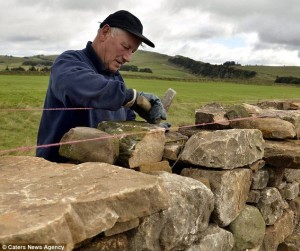
Gaining Biblical Tools Part 1: Understanding Your Tools
Gaining Biblical Tools
Part 1: Understanding Your Tools
 The Bible is Truth that is filled with wisdom and teaches the tools to apply in every area of life. When you go to your toolbox in the garage you are choosing a tool for your specific job. A tool is a device that is used to achieve a task; it is a procedure or process with a specific purpose.
The Bible is Truth that is filled with wisdom and teaches the tools to apply in every area of life. When you go to your toolbox in the garage you are choosing a tool for your specific job. A tool is a device that is used to achieve a task; it is a procedure or process with a specific purpose.
A tool is used to perform an operation, or is necessary in the practice of a vocation or profession. You know why you need a hammer and a screw driver in your home and everyone has one. Why then do we not all have the tools we need to navigate through conflict, pain, rejection, betrayal, health challenges, or financial issues?
No one rolled out of bed with all of these tools. You only learned from whatever tools you gained through your family, community, and peer groups and everyone developed in a fallen world and so did you. That means that no one has a complete package of God approved tools except for Jesus. So let’s learn from Him.
I am all about providing you with tools for daily life. This also happens to be biblical and counseling tools. These tools help you to maneuver your way through your thinking, emotions, speech patterns, life, and relationship skills. They are not to be held by the counselor, but given to you so you can learn to work through every situation on your own and use God as your primary counselor.
Too often you are taught facts about something, what you
should do, what will happen if you don’t do it, but you
are left on your own to figure out “How To” do it.
As a professional counselor, I use a variety of tools to help you with all types of presenting problems. Your presenting problem is not the root problem, which you usually need help to identify and resolve. I help you gain tools and learn skills to identify the root issues that are driving your emotions, relationships, or life skills. Every tool that you obtain can be applied to different issues.
Here is an example. If you do home improvement projects, you want different tools so you have the right tool for the job. You don’t have a tool just for the joy of having it, well maybe some people do, but most of us have tools so that we can achieve a goal. You may have a drill and it is just what you need because it does the desired task; it makes a hole.
Many of your tools do a variety of things. You need to learn what a tool can do for you and use it with skill. I just recently learned about the use of a miter saw in a house project my husband and I did together. The saw cut varying degrees and angles. It cuts boards, interior trim like crown molding and chair rail molding, it cuts hardwood and laminate flooring, and I’m sure it has other uses as well. A drill would have put a hole in the flooring, but was the wrong tool for a diagonal cut. The miter saw was the tool that we needed to put hardwood flooring in our house. It was the right tool for the job. So how does that work in application to your thinking, identity, life, and relationship skills, or any of the topics that could be considered counseling?
Sometimes one tool will help you work through an issue or situation better than another, and you will learn what tools work best for your needs. Let’s make the jump for the practical application from tools in your garage, to tools for your soul — the mind, will, and emotions realm — and put it into everyday terms. A counseling tool helps you to identify, evaluate, and change faulty thinking, core beliefs, life, and relationship skills.
The Greek word “repentance” in the New Testament means “change of mind,” which includes a change of attitude and a change of heart. Identifying and changing your thinking to agree with truth results in being transformed in every area of your life and behaviors. Regular use of counseling tools helps you make wise choices, and helps you to experience peace and joy with healthy emotions, behaviors, and relationships.
You can use the same counseling tool to identify
the roots and the results in your thinking,
emotions, behaviors, or relationships.
One tool has many uses. It can identify your thinking patterns and core beliefs that form expectations in regard to your personal relationships or authority figures. You can identify trauma, abuse, or abandonment issues that you have experienced, and remove the resulting negative emotions, or behaviors from your life. You may use the same tool to identify the root systems to addictive and compulsive behaviors, or use the tool to identify and change the patterns that you developed in communication, or how you resolve conflicts.
The more tools you add to your toolbox, the more life will stop tripping you up. The next thing you need is the skill to use the tools successfully. They take practice through application. The better you navigate with your tools through thoughts, emotions, and relational issues the easier it becomes. In this series we will look at developing these skills and give you a couple tools to begin practicing.










Contact With Us